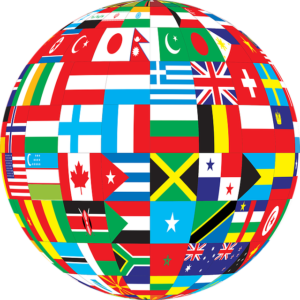
Globalization has altered the conduct of trade among businesses. It paved the way for the rapid expansion of different industries from one country to another and enabled breakthroughs regarding scientific and technological development.
It also enables people to be aware of the latest products and services worldwide (Ibrahim, n.d.).
While this concept of trade has proven its worth on the global trade, global business managers are facing a different dilemma when it comes to international trade operation.
Among these problems include politics. There are different factors that affect the conduct of global trade and serve as challenges to trade managers.
This paper will dig deeper on each of these factors and see how this has shaped businesses and their operations in certain areas.
Politics and Global Trade
Global business always has to deal with the political structures within the country in which they want to operate.
Politics is vital to their operation considering that the government policies that govern the conduct of business within the locality usually stemmed from political interventions of those handling the government.
Since the political environment is beyond the control of trade managers, some companies are sometimes caught on political issues that could affect their business operations.
Political factors that affect global trade management (Spencer & Gomez, 2003):
- Regulations and Government Interventions. Studies argue that the political environment in one country is an important factor in crafting regulations and strategies that could influence the performances of firms operating within their boundaries (North, 1990; Lodge, 1990).
Politics and governance have been inseparable since time immemorial, and some of the policies might change over time depending on who handles the government.
One of the many examples of the influence of regulations and government interventions was in China.
The country, more than 30 years ago, maintained its doors closed to foreign investments and isolated itself from global due to reforms instituted by its government.
In 1979, it opened its doors to global business, and it emerged as a major global trade and economic player.
Through the years, as the global business climate rise and fall, China has been calibrating its policies every now and then to alleviate the negative effects of global market trends on their economy (Morrisson, 2015).
In a nutshell, the regulatory and government intervention factors are more on policies for businesses to adhere.
Some of these are the obtainment of necessary permits, the local legislations that the businesses must comply and other laws that apply when it comes to foreign business operations.
There are countries with stricter rules when it comes to doing business, and some countries tend to be business-friendly to encourage investment and institute favorable measures for investors such as tax reduction or tax holiday and others.
Shifts in these policies might affect global managers’ position when it comes to making decisions.
For instance, if the government implements stricter measures when it comes to taxation, or if the government instituted policies that limit the capabilities of foreign investors such as control on capital movement, managers must devise ways on how to counter or balance the new measures.
Some examples of regulations that affect foreign firms include confiscation, expropriation, domestication and other government actions like boycott or sabotage (Mark & Nwaiwu, 2015).
Confiscations happen when government seize companies and transfer the ownership to the government.
One particular incident about this issue was in Russia when its government threatened to confiscate assets that belong to the US and European companies.
Domestication, on the other hand, is the government’s effort to control foreign investments and urge companies to prioritize local resources and production.
This could limit the company’s decisions on the importation of resources and other vital issues.
There are other drastic moves that governments might implement against foreign companies such as sabotage or boycott.
It could happen especially if there are misunderstandings between the government and the company itself or between the country of origin of the firm.

- Corrupt government. One of the most challenging political issues that global managers have to deal with is a corrupt government.
Corruption is endemic to different countries around the world. This practice affects different policies and might hurt the business sector within the locality.
Global trade managers, to pursue a business interest in the locality, might opt to bribe local politicians in securing the needed requirements for their business.
This practice of taking part in their corrupted system is very risky in the long run, especially if the illegal transactions will be uncovered by the next administration.
Corruption also leads to different events such as inefficiency in the government, lost resources, weakened development and increase in crime rate (Ray, 2017).
All of these incidents could be hurtful for businesses, either local or multinational. Inefficiency in government might lead to delays in transactions and too much bureaucracy.
The government might also neglect some basic aspect of society like health and education.
These neglect will cost the country loss of resources especially if its citizens had problems with health and became less educated.
The impact of these problems on global could be significant in the long run since constant health problems among their laborers, or the lack of educated manpower might hurt their operations.
On the other hand, weakened development might result in fewer infrastructures such as roads and other facilities.
Without these developments, global trades will find it hard to operate. Additionally, as corruption could increase the crime rate, this could also become headaches for foreign firms if every now and then their area of operation will be afflicted with criminals.
In totality, corruption could increase the cost of business operation of businesses in a country, and it could also enable unfair business conducts, crowd out productive markets and reduce product and services qualities (Macleans & Mangum, 2000).
- Political Instability. Political instability is also another challenging factor for global managers.
Political instability could stem from public frustration over the regime and other factors that could lead to revolutions, coup, civil war, and others.
The presence of chaos within a country could pose threats to their businesses and on the daily conduct of their operation.
For instance, in a country where there is political uncertainty like rallies or mass demonstrations or anarchy on a worst-case scenario, global managers might find themselves in a difficult scenario especially if the event has taken its toll on the peace and order situation in the country.
With the peace and order sacrificed, there are chances that economic activities and flows of trade in and out of the country might be disrupted.
Investors might also become reluctant in putting their investments in an unstable state.
At present, among the examples of countries with political instabilities are Syria and other war-inflicted countries.
This instability has led to war, which eventually damaged the country’s economy and infrastructures badly.
Without which, along with other elements such as peace and order, stable workforce, and others, a foreign business, and even the local one, will not thrive.






